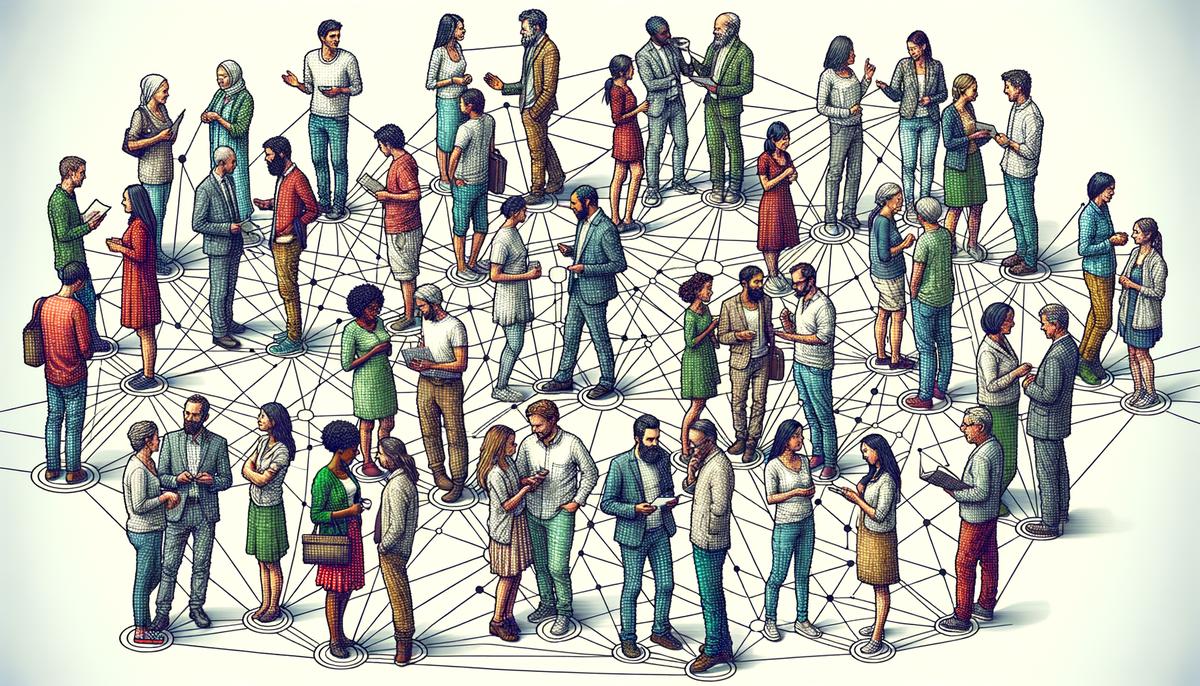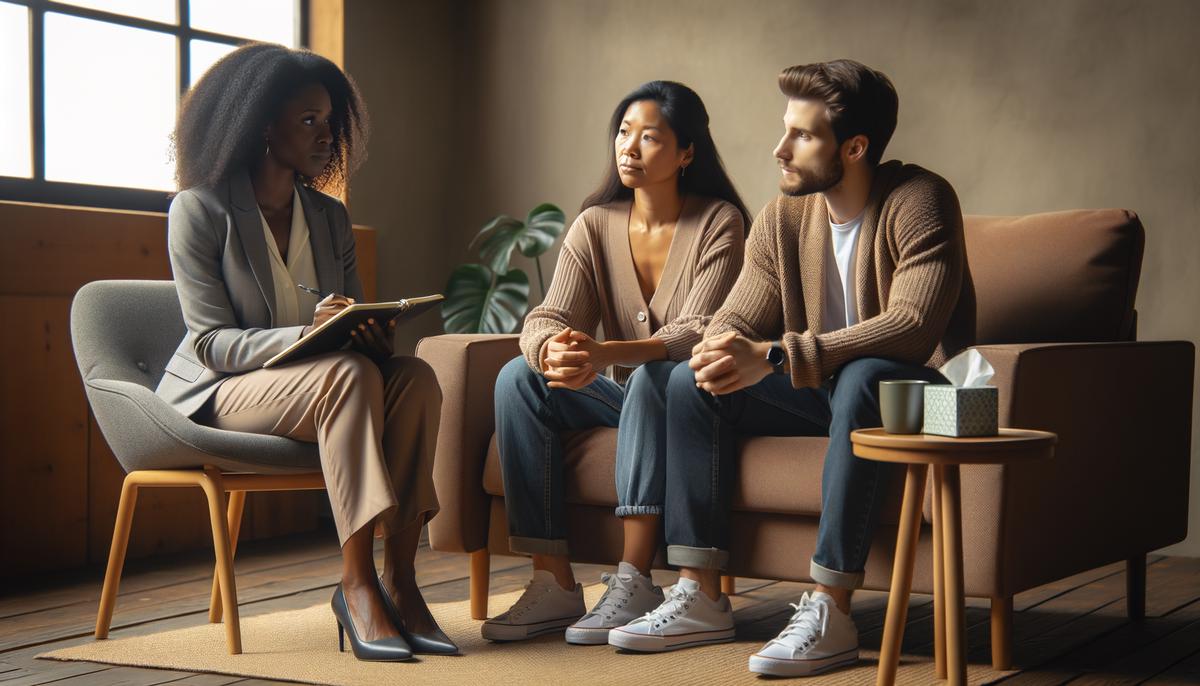Many of us have felt the strange sensation of loneliness even when we are not alone. This feeling often comes not because we don’t have people around us, but because the connections we have aren’t giving us what we truly need. We all look for relationships where we are understood, appreciated, and genuinely connected with others.
When our relationships lack depth and understanding, we can feel isolated despite being in a group. The essence of our social interactions hinges more on their quality rather than just how many we have, underlining the necessity of cultivating deep and meaningful connections.
Understanding Loneliness in Companionship
Feeling lonely despite being surrounded by people is a perplexing yet common experience. This phenomenon often arises not from the absence of others, but from a perceived lack of meaningful connections and understanding in our relationships. Human beings inherently crave deep, empathetic interactions where they feel seen, heard, and valued.
When these needs are not met, even in a crowd or among friends, a sense of isolation can envelop us. The quality of our connections matters far more than the quantity, emphasizing the importance of nurturing relationships that offer genuine engagement and emotional reciprocity.
Moreover, the digital age brings with it a paradox of connectedness; while we are more connected than ever through social media and technology, these platforms can sometimes deepen the chasm of loneliness. They offer a simulacrum of connection without the depth and authenticity found in face-to-face interactions.
The curated, often idealized presentations of life on these platforms can also lead to feelings of inadequacy and disconnection, as one compares their behind-the-scenes to everyone else’s highlight reel. Thus, loneliness in the company of others is a reflective signal from our psyche, urging us to seek more meaningful, profound connections that resonate with our intrinsic social instincts and address our core emotional needs.

Communicating Needs and Desires
Effective communication plays a pivotal role in mitigating loneliness by fostering a sense of belonging and mutual understanding. It transcends the mere exchange of words to involve active listening, empathy, and the sharing of experiences in a way that bridges the emotional and psychological gaps between individuals.
When people articulate their thoughts and feelings openly and receive attentive, thoughtful responses, they feel seen and understood, which is a fundamental human need. This process of give-and-take in communication builds trust and deepens connections, gradually dispelling the shadows of loneliness by reinforcing the idea that one is not alone in their experiences or feelings.
Moreover, effective communication opens avenues for shared activities and interests, creating common ground that further unites people. By engaging in meaningful dialogues about one’s passions, fears, and aspirations, individuals find themselves part of a supportive network that values their contribution and presence.
This shared understanding and mutual respect cultivated through constructive communication are crucial for developing resilient bonds that withstand the sense of isolation. Such connections provide a safe space to express vulnerability without fear of judgment, thus counteracting loneliness with a community that embraces and upholds each member’s unique identity and experiences.

Rekindling Connection and Intimacy
In the journey towards rebuilding intimacy, couples need to focus on rekindling shared experiences that initially brought them closer. One effective approach is dedicating time to engage in activities both partners enjoy, which could range from outdoor adventures to taking up a new hobby together.
This not only fosters joy and laughter, essential ingredients for a healthy relationship, but also creates new memories that can serve as a reaffirmation of their bond. It’s crucial that during these activities, both individuals are fully present, putting aside digital distractions to genuinely connect with each other. This focused engagement helps in rediscovering the unique qualities in one’s partner, reigniting the spark that might have dimmed over time.
Additionally, establishing a ritual of uninterrupted conversations plays a pivotal role in maintaining intimacy. Setting aside a specific time daily or weekly, where both partners can share their thoughts, feelings, and daily experiences, helps maintain an emotional connection. During these conversations, practicing active listening is key.
It involves giving one’s undivided attention, acknowledging the partner’s feelings without immediately trying to fix them, and validating their experiences. This level of communication fosters a deeper understanding and empathy between partners, strengthening their emotional intimacy. By consistently making time for each other and engaging in meaningful exchanges, couples can effectively rebuild the intimacy that is foundational to a sustaining and loving relationship.

Seeking External Support
When couples face persistent issues that seem insurmountable despite their best efforts, seeking external help can be a wise and courageous step. This typically occurs when communication breakdowns persist, leading to recurring conflicts or when there’s a significant change in the relationship dynamic, such as after the birth of a child, financial stressors, or infidelity. External support, in the form of couples therapy or counseling, offers a neutral space where both partners can express their feelings and thoughts openly, facilitated by a professional who helps navigate these conversations constructively. Engaging in therapy can provide the tools and insights needed to understand each other’s perspectives better, heal wounds, and strategize ways to strengthen the relationship.
Choosing the right time to seek outside help is crucial; it’s often most beneficial before resentment builds to irreversible levels. Early intervention can prevent the deterioration of the relationship by addressing issues promptly. How a couple seeks help is also important.
Researching together to find a therapist or counseling program that aligns with their needs and preferences can foster a sense of teamwork and mutual commitment to improving the relationship. Many therapists offer initial consultations, which can be an opportunity for the couple to assess how comfortable they feel with the therapist’s style and approach. This joint effort to seek help not only signifies a shared investment in the relationship’s future but also starts the healing process by reinforcing that the partnership is worth fighting for.

Throughout our lives, the quality of our relationships plays a crucial role in shaping our feelings of connection and well-being. By focusing on open communication, participating in activities together, and embracing the support of external resources when needed, we can pave the way towards more fulfilling relationships.
Such efforts not only help in alleviating feelings of loneliness but also enrich our lives with the joy of genuine connections. Remember, fostering meaningful relationships takes time and conscious effort, but the resulting sense of belonging and understanding is invaluable. As we strive to build these connections, we light up paths that lead us out of the shadows of loneliness into the warmth of companionship and mutual understanding.
